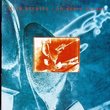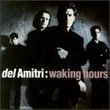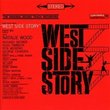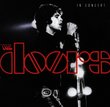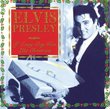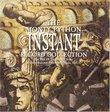| All Artists: Moody Blues Title: Days of Future Passed (Reis) Members Wishing: 1 Total Copies: 0 Label: Polydor / Umgd Original Release Date: 1/1/1967 Re-Release Date: 7/15/2008 Album Type: Original recording remastered Genres: Pop, Rock, Classic Rock Styles: Progressive, Progressive Rock, Psychedelic Rock, Album-Oriented Rock (AOR) Number of Discs: 1 SwapaCD Credits: 1 UPCs: 600753066317, 0600753066317 |
Search - Moody Blues :: Days of Future Passed (Reis)
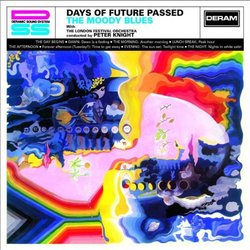 | Moody Blues Days of Future Passed (Reis) Genres: Pop, Rock, Classic Rock
2008 reissue of their Moody Blues first seven album releases, each with bonus content. From their first landmark album release, Days Of Future Passed, with creative members Justin Hayward (guitar, vocals) and John Lodge (b... more » |
Larger Image |
CD DetailsSynopsis
Album Description 2008 reissue of their Moody Blues first seven album releases, each with bonus content. From their first landmark album release, Days Of Future Passed, with creative members Justin Hayward (guitar, vocals) and John Lodge (bass, vocals) coming on board plus the classics 'Nights In White Satin' and 'Tuesday Afternoon' finding instant success with radio and record buyers, their appeal became instantaneously widespread worldwide. Each release in this set of their first seven evolutionary albums includes a varying number of special mixes or versions of songs that are also represented in their final form on the respective albums from their highly spectacular career. Similarly Requested CDs
|
CD ReviewsNow This Is A Decent Remaster!!! R. C. Whiteley | Louisville, KY USA | 10/10/2008 (4 out of 5 stars) "Well, I was never crazy about the 1997 remasters of the "core 7" period of the Moody Blues music. I listened to the original cd releases next to the '97 remasters, and really found little difference. Now, with the 2008 new remastered classics, the difference is clear! The sound is truly crisp and has a sonic clarity like never before (at least on cd.) I've read all the arguments about the "quad" versions picked for remaster here, but overall, I cannot complain about this new sound. I wish the "Peak Hour" track didn't have the analog crackling after the lyrics are over (at its end.) But, DOFP is a recording that is over 40 years old. Actually, it holds up rather well, all things considered! I love the Moody Blues, and I am so happy that I found a cd version of DOFP that I thoroughly enjoy. Lastly, the bonus tracks are amazing! There are five here from the "Prelude" compilation, a cd of non-album tracks. I'm so glad to have these songs on cd, since "Prelude" has been out of print for some time. I like the other bonus tracks as well. "Don't Let Me Be Misunderstood" allows us to hear what the Moody Blues sounded like in 1967 in the studio off the cuff." A true eternal masterpiece Golovanov Alexey | Limassol, Cyprus | 09/11/2008 (5 out of 5 stars) "This is an amazing masterpiece of progressive (or symphonic) rock - whatever you choose. Well balanced, accomplished and ahead of time. Perhaps the best album of the genre - when the Beatles were shyly flirting with an orchestra (and their vocals still remain unconvincing), when John Lord desperately tried to bring together his group (Deep PurpleConcerto For Group & Orchestra) and the orchestra - and still they didn't sound as one thing - and Procol Harum was getting ready to play with Edmonton OrchestraLive in Concert with the Edmonton Symphony Orchestra - the Moody Blues did it - together with the London Festival Orchestra conducted by Peter Knight. And the year of the recording was 1967, although the album was released in 1968 on their new label "Deram" and became their first GOLD DISC (followed almost immediately by another two golds -On the Threshold of a DreamIn Search of the Lost Chord- all 3 are must have. And still it remains the best example of symphonic rock, composed by rock-musicians. Superb, fantastic performance, mesmerizing vocal harmonies, incredible interplay of the band with an orchestra - a real feast. The first performance of "Nights In White Satin" is mind-blowing. One should keep in mind that the orchestrated passages were recorded separately and "stuck" to the band tracks, so in fact the band is not accompanied by the orchestra. But this is irrelevant - the final result counts. It is one of the top 100 albums of the century. Highly, highly recommended - buy it at least to know the highest standard P.S. Try "David" - Another Day, Another Lifetime- to my humble opinion, that was the only decent authentic answer to Moody Blues (although under the spell of the Doors)" Good but disappointing Gibson EB3 | USA | 07/19/2009 (3 out of 5 stars) "No question, for clarity of sound the 2008 remaster is the best CD issue of this album ever, but....
Those of us who have been listening to this album (on vinyl) since it's release in 1967 were no doubt perplexed when we first heard it on CD. Why? Because the LP and the CD(s) contain different mixes. The story, as I've heard it, was that the album was remixed in 1978 because the original master tapes had deteriorated and all subsequent issues of DOFP have been made from this remix which lacks several key overdubs found in the original. To some, perhaps most, the mix differences are inconsequential and hardly noticeable. For them I heartily recommend this CD. The clarity here is stunning and aside from a few instances where the musical background overpowers the vocals its about as good of a remaster as you're ever going to hear. The bonus material is interesting as well. What is disappointing to me is that no CD has been released of the superior original mix. I have heard that there were plans to release one in 1997 (from a submaster?) but that never came about. Until that happens I will jealously guard my early pressing of the vinyl LP as my preferred listening source for this classic album." |

 Track Listings (17) - Disc #1
Track Listings (17) - Disc #1

